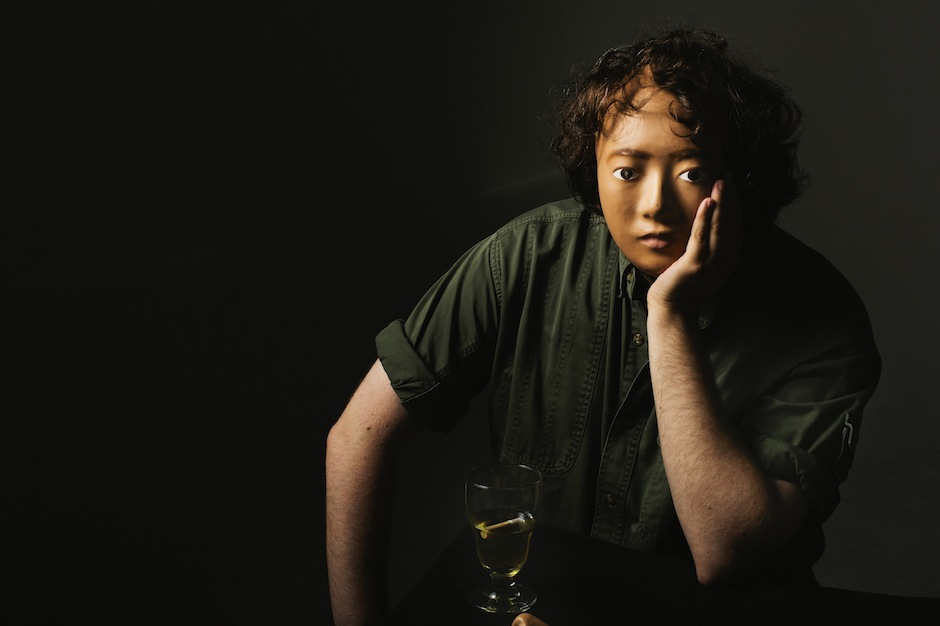Release Date: September 30, 2013
Label: Warp
Oneohtrix Point Never, R Plus Seven (Warp)
8
Darkside, Psychic (Other People)
8
Though roughly eight years separate them, Dan Lopatin and Nicolas Jaar together epitomize a certain strain of 21st century electronic musicians, or — if you prefer grab-all generational tags —millennials. But it’s not as simple and privileged as that. Both men are first-generation Americans who gravitated to the seedier, less condo-friendly corners of Brooklyn. The title of Lopatin’s 2009 album Russian Mind (under his Oneohtrix Point Never moniker) was no euphemism; it arose from the grimy underground of basement noise shows. A floor or two up, Jaar (who spent his early years between Chile and New York, and now lives in Manhattan) found a home on the dilapidated dance floors of South Williamsburg’s Marcy Hotel.
Jaar lies somewhere on an axis between electric/amoebic minimal techno producer Ricardo Villalobos (himself a Chilean expat) and the late, revered, indie icon Arthur Russell. He released his full-length solo debut, Space Is Only Noise, in 2011 (the year he reached legal drinking age), with critics quickly hailing him as a next-generation wunderkind. His movements since have been unpredictable, and often avant-pop-oriented: For the last Record Store Day, he remixed both Grizzly Bear and Brian Eno; in June, he and touring-guitarist-turned-Darkside-sparring partner Dave Harrington took their razors to a full-length remix of Daft Punk’s Random Access Memories. But the first 11 minutes of Psychic, the duo’s official debut, are even more random and memorable.
Here, the labyrinthian “Gold Arrows” flickers in and out of focus, Jaar’s sustained organ drones shadowed by Harrington’s guitar doing its nimblest cello impression. Call it progressive house, but in the Pink Floyd sense of “progressive,” with Jaar’s seductive and slo-mo 90-BPM beat offering a very specific idea of “house.” The pair’s influences range from Dark Prince-era Miles Davis material to Portishead’s Dummy (see “Metatron”) to dark disco (“The Only Shrine I’ve Seen”) to even a few licks of Portuguese fado, all of it spare but sensuous — mood music for watching e-cig vapor curl. Jaar kicked off his BBC Essential Mix with Angelo Badalamenti talking about the Twin Peaks soundtrack, and that Lynchian mode reoccurs here, buoyed by Harrington’s twisted, noir-minded, Marc Ribot-inspired guitar tone. On the smoldering roadhouse darkness of “Paper Trails,” Jaar even delivers his vocals with a Wild at Heart drawl.
Lopatin’s sixth album as Oneohtrix Point Never also takes us to film school, but his approach recalls the Kubrick-obsessed blogger in recent The Shining-deconstructing documentary Room 237, obsessing over the patterns and mise en scene. The R Plus Seven cover shot even features what could be the world’s loneliest monolith. Throughout, Lopatin does favor the human voice, but he takes the Ligeti choirs of that famous 2001 scene and re-imagines them as a hundred HAL 9000s, favoring the artifice over the intelligence. Much like Jaar, Lopatin opens his album with a swell of organ to set the mood, but soon quickens it to strobe-light intensity, shreds a chorale until all that’s left is a gasp, and sprays all of it across the stereo field to the point of dizziness. With his first album for Warp, OPN proves his mettle amid labelmates like Aphex Twin and Flying Lotus.
Much like fellow noisenik-turned-hypnagogic-popper James Ferraro, Lopatin revels in the strange polymers that comprise synthesized MIDI music now — the sound of banking commercials, NFL horn fanfare, Nicki Minaj. Everything’s plastic in R Plus Seven‘s tropics, from the Chinese zither of “He She” to the children’s choir of “Chrome Canyon.” Nothing lingers long on Seven, but you can hear just how quickly OPN gobbles up EDM’s bass frequencies, the Max-DSP moves of Fennesz, Ryuichi Sakamoto’s synthetic silkiness, even the frenetic arpeggios of Glassworks and sampler chops of footwork. If “Inside World” doesn’t soundtrack the inevitable skinny-dipping scene in Avatar 2, then somebody screwed up.





